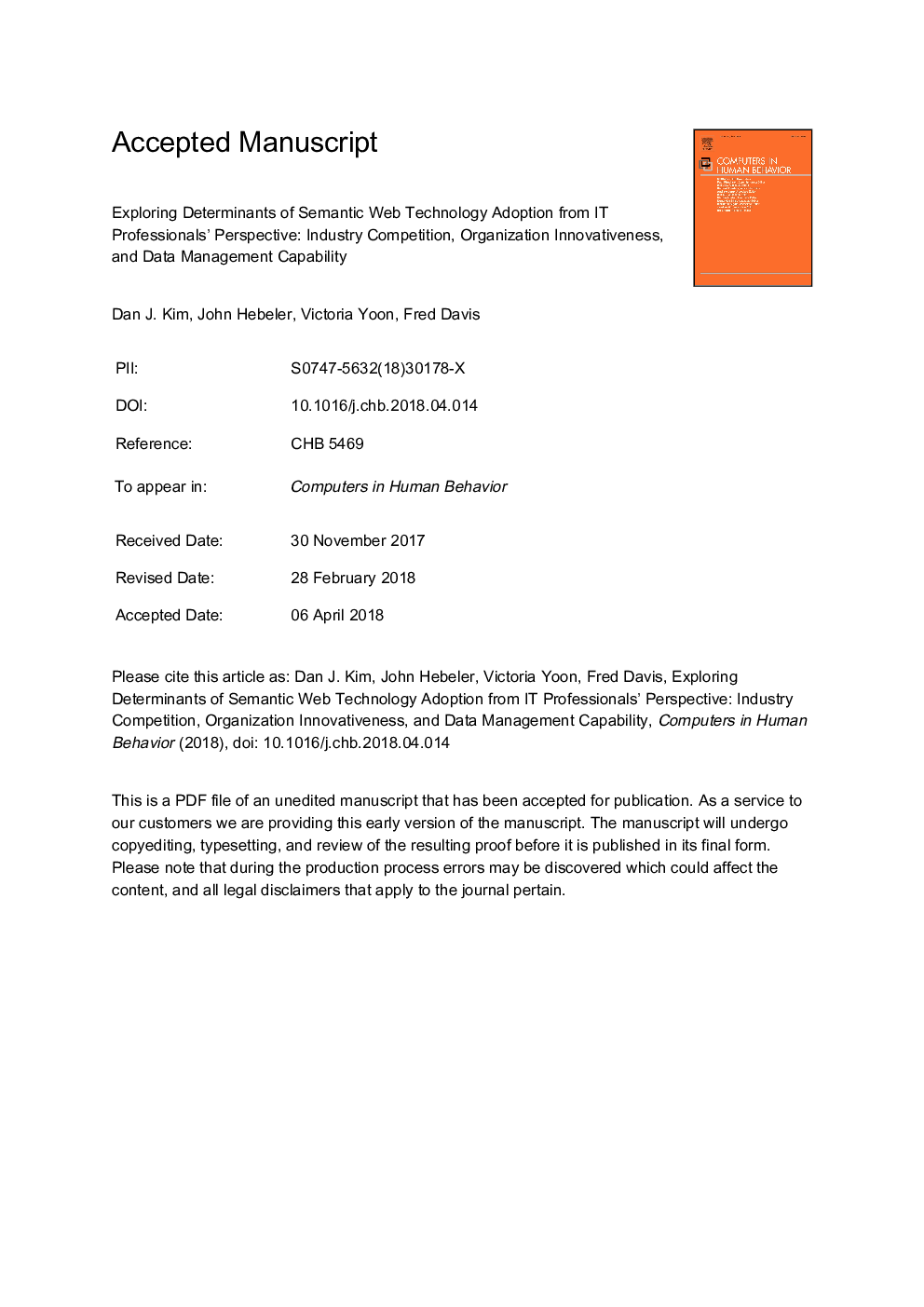| Article ID | Journal | Published Year | Pages | File Type |
|---|---|---|---|---|
| 6835815 | Computers in Human Behavior | 2018 | 43 Pages |
Abstract
The scale and complexity of big data quickly exceed the reach of direct human comprehension and increasingly require machine assistance to semantically analyze, organize, and interpret vast and diverse sources of big data in order to unlock its strategic value. Due to its volume, velocity, variety, and veracity, big data integration challenges overwhelm traditional integration approaches leaving many integration possibilities out of reach. Unlocking the value of big data requires innovative technology. Organizations must have the innovativeness and data capability to adopt the technology and harness its potential value. The Semantic Web (SW) technology has demonstrated its potential for integrating big data and has become important technology for tackling big data. Despite its importance to manage big data, little research has examined the determinants affecting SW adoption. Drawing upon the technology-organization-environment framework as a theory base, this study develops a research model explaining the factors affecting the adoption of SW technology from IT professionals' perspective, specifically in the context of corporate computing enterprises. We validate the proposed model using a set of empirical data collected from IT professionals including IT managers, system architects, software developers, and web developers. The findings suggest that perceived usefulness, perceived ease of use, organization's innovativeness, organization's data capability, and applicability to data management are important drivers of SW adoption. This study provides new insights on theories of organizational IT adoption from IT professionals' perspectives tailored to the context of SW technology.
Related Topics
Physical Sciences and Engineering
Computer Science
Computer Science Applications
Authors
Dan J. Kim, John Hebeler, Victoria Yoon, Fred Davis,
